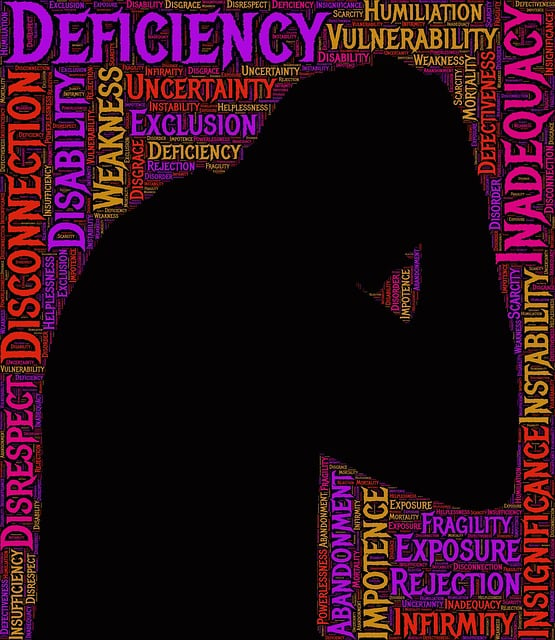Louisville Anxiety Therapy tackles burnout among healthcare providers through comprehensive programs focusing on stress management, self-care, and supportive environments. They offer tailored solutions like mindfulness meditation, CBT, and emotional intelligence workshops, empowering professionals to enhance resilience and work-life balance. Their initiatives improve patient care, preserve therapists' mental health, and contribute to a sustainable healthcare workforce in Louisville.
Healthcare provider burnout is a growing concern, impacting not just individuals but the entire healthcare system. This article explores effective strategies to prevent burnout among healthcare workers in Louisville, focusing on stress management, resilience building, and supportive work environments. We delve into the significance of self-care practices and professional development opportunities tailored to their unique needs, drawing insights from experts in Louisville Anxiety Therapy. By implementing these measures, healthcare providers can enhance job satisfaction and overall well-being.
- Understanding Burnout Among Healthcare Providers
- Strategies for Stress Management and Resilience
- Creating Supportive Work Environments in Louisville Anxiety Therapy
- The Role of Self-Care and Professional Development
Understanding Burnout Among Healthcare Providers

Burnout among healthcare providers is a growing concern, particularly in demanding fields like medicine and nursing. It goes beyond simple job dissatisfaction; burnout refers to a state of emotional, physical, and mental exhaustion, often accompanied by cynicism and detachment from work. This phenomenon is not just detrimental to individual well-being but also has significant implications for patient care and healthcare systems as a whole.
In Louisville, Anxiety Therapy plays a crucial role in addressing this issue. Mental health education programs designed to equip healthcare professionals with coping mechanisms and stress management skills can help prevent burnout. Additionally, mental illness stigma reduction efforts are essential in creating supportive environments that encourage providers to seek help without fear of judgment. Through Mental Health Policy Analysis and Advocacy, policymakers can implement strategies that prioritize provider well-being, ensuring a healthier and more sustainable healthcare workforce.
Strategies for Stress Management and Resilience

In the high-pressure environment of healthcare, burnout is a significant concern. Therefore, implementing effective strategies for stress management and resilience is paramount. Louisville Anxiety Therapy offers specialized programs designed to equip medical professionals with tools to navigate challenging situations. These workshops focus on evidence-based techniques such as mindfulness meditation, cognitive behavioral therapy (CBT), and positive thinking exercises.
By participating in these initiatives, healthcare providers can build resilience, enhance their ability to cope with stress, and improve overall well-being. Stress management workshops organize activities that foster a sense of balance, allowing professionals to recharge and maintain a healthy work-life integration. Incorporating practices like deep breathing, progressive muscle relaxation, and reframing negative thoughts into positive ones, can significantly contribute to the prevention of burnout in Louisville’s healthcare community.
Creating Supportive Work Environments in Louisville Anxiety Therapy

In Louisville Anxiety Therapy, fostering a supportive work environment is paramount in preventing burnout among healthcare providers. This involves creating a culture that prioritizes emotional well-being and acknowledges the unique challenges mental health professionals face. By integrating practices such as regular staff support meetings, peer mentoring programs, and workshops on emotional intelligence, therapists can enhance their resilience and maintain a healthy work-life balance. These initiatives not only strengthen the team dynamic but also improve patient care by ensuring providers are emotionally available and engaged.
Additionally, implementing robust risk management planning for mental health professionals is crucial in Louisville Anxiety Therapy’s commitment to burnout prevention strategies for healthcare providers. This includes structured protocols for self-care, stress mitigation techniques, and clear guidelines for seeking help when needed. Such measures help therapists navigate the demanding nature of their work while safeguarding their mental health. Through these proactive steps, Louisville Anxiety Therapy aims to create an environment that nurtures professionals, ultimately leading to improved patient outcomes and sustained career satisfaction.
The Role of Self-Care and Professional Development

In the relentless pace of healthcare delivery, self-care emerges as a vital pillar in preventing burnout among providers. It’s not just a recommendation but an essential practice that empowers medical professionals to recharge, reflect, and rejuvenate. Incorporating Mind Over Matter principles can be transformative, encouraging mindfulness techniques, stress management strategies, and a focus on mental well-being. Louisville Anxiety Therapy services tap into these principles, offering therapists who specialize in addressing anxiety, a common yet treatable side effect of burnout. By prioritizing self-care, healthcare providers can enhance their resilience, ensuring they approach their work with renewed energy and emotional balance.
Professional development is another powerful tool in the fight against burnout. Continuous learning and skill enhancement not only keep medical professionals updated on the latest treatments and technologies but also foster a sense of purpose and accomplishment. Encouraging emotional intelligence through workshops, seminars, and peer support groups equips healthcare providers with the skills to navigate challenging patient interactions and maintain healthy work-life balance. This holistic approach, combining self-care practices like mindfulness with professional development, is key to creating a sustainable career in healthcare, where providers can offer optimal care without succumbing to the demands that often lead to burnout.
Healthcare provider burnout is a growing concern, but by implementing effective strategies for stress management and fostering supportive work environments, such as those offered by Louisville Anxiety Therapy, professionals can enhance resilience. Prioritizing self-care and professional development is crucial in preventing burnout and ensuring healthcare providers maintain their well-being and passion for patient care. These integrated approaches create a sustainable and thriving healthcare system.














